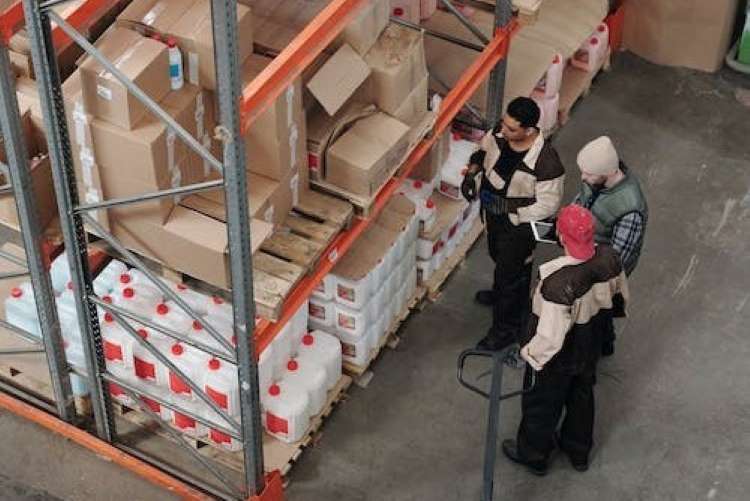Micro, Small, and Medium Enterprises have long held a special place in India’s economic landscape. Through their contributions to employment, innovation, GDP, and exports, MSMEs have proven to be the cornerstone of economic resilience even in the face of turbulent times. These enterprises encapsulate the spirit of entrepreneurship, a spirit that has fuelled our nation’s progress for decades.
A recent study by MH Bala Subrahmanya and Charan Singh has shed light on the complex web of challenges faced by MSMEs. These challenges are not just everyday hurdles; they are the evolving realities of a globalised world. As we stand on the cusp of the Fourth Industrial Revolution, it becomes imperative to chart a course that addresses these challenges and propels our MSMEs towards a prosperous future.
READ I MSMEs struggle as economic crisis grips major export markets
Embracing the era of Industry 4.0
The ever-evolving landscape of international trade, with the dominance of global value chains orchestrated by multinational corporations, is a new frontier for MSMEs. Coupled with the transformative potential of Industry 4.0, these dynamics demand adaptability on an unprecedented scale. Industry 4.0, characterised by artificial intelligence, cloud computing, and the integration of man and machine, promises to usher in smart factories, intelligent homes, and technology-infused offices.
However, the domestic industry’s structure is akin to a multi-layered pyramid. At its base, we find the unorganised sector, followed by modern MSMEs with their regional and national market reach. Further up, we encounter modern large-scale enterprises, often with global connections, and at the pinnacle, the ascent of high-tech startups.
MSMEs need policy backing
While the promise of Industry 4.0 is tantalising, a significant number of our MSMEs lack the essential ingredients for its full-scale adoption. Infrastructure gaps, technological shortcomings, and a shortage of skilled laborers present formidable hurdles. To combat these challenges, the policy makers must adopt a comprehensive approach. First and foremost, digital infrastructure must be fortified. Investments in areas like semiconductor manufacturing, the bedrock of technological innovation, are not just commendable but imperative.
Secondly, collaborative endeavours between industry chambers and government agencies must be nurtured. The MSME ministry and the Federation of Indian Exporting Organisations can be the fulcrum of Industry 4.0 investments. These partnerships can fuel innovation and bolster the capacity of our MSMEs to embrace this technological wave.
The government holds the key to unlock the potential of MSMEs in embracing Industry 4.0. As financial constraints often hinder MSMEs from investing in new technologies, the government can provide targeted financial assistance, including grants and subsidised loans to enable MSMEs to adjust to the changing industry landscape. It can also streamline regulations and policies to incentivise the adoption of new technologies. By creating a favourable regulatory environment that encourages experimentation and innovation, the government can pave the way for MSMEs to embrace transformative changes.
Amidst these challenges, a promising proposition comes to light — the establishment of the Indian Institute of Entrepreneurship (IIE), a concept put forth by Charan Singh. The IIE, envisioned as a network of state-level institutions, could be the beacon that guides India’s MSMEs toward brighter horizons. Its curriculum, carefully crafted, would not only provide theoretical grounding but also hands-on experience, nurturing not just individuals but innovation ecosystems.
The way ahead
Industry associations are well-positioned to facilitate the technology transformation of the MSMEs. They can act as information hubs, providing MSMEs with insights on the latest technologies, trends, and best practices. This can empower MSMEs to make informed decisions. They could also organise workshops, seminars, and training sessions to equip MSMEs with the skills needed to integrate new technologies into their operations.
Ultimately, the success of Industry 4.0 adoption rests on the MSMEs themselves. They must allocate resources to invest in new technologies, understanding that these investments are pivotal to their long-term sustainability and growth. They also need to invest in training their workforce to operate and leverage new technologies effectively. A skilled workforce is essential for reaping the benefits of technological advancements.
In an era defined by intricate challenges and dynamic transformations, our commitment to fortifying the MSME sector is resolute. With the right blend of policy foresight and technological adaptation, we can navigate the tumultuous seas and thrive against all odds.
The trajectory ahead is an interplay of technology, education, and policy recalibration. In this pivotal juncture of our history, let us recognise that the strength of our economy is not solely vested in the powerhouses but rests upon countless MSMEs, whose collective might propels our nation towards progress.

